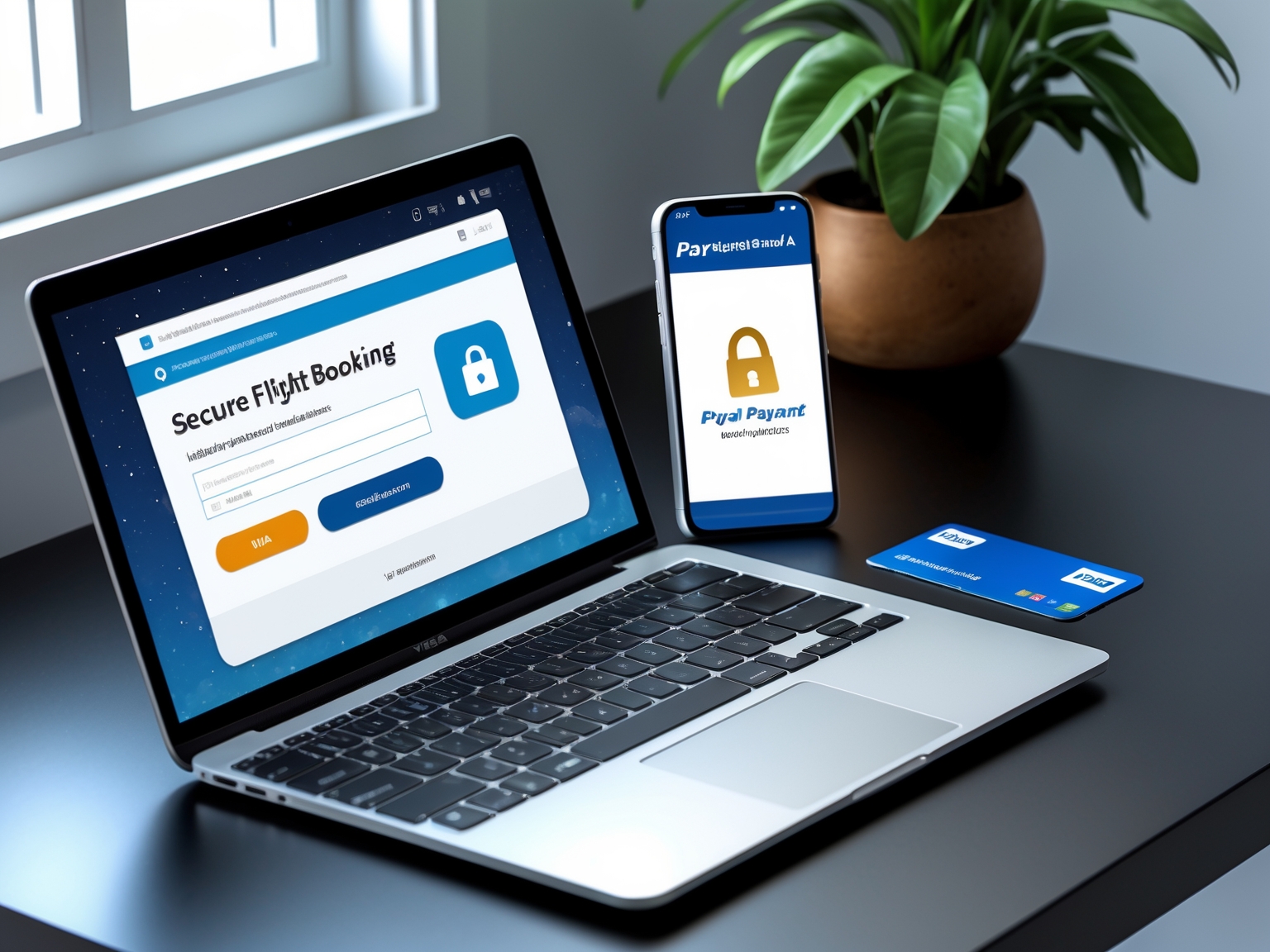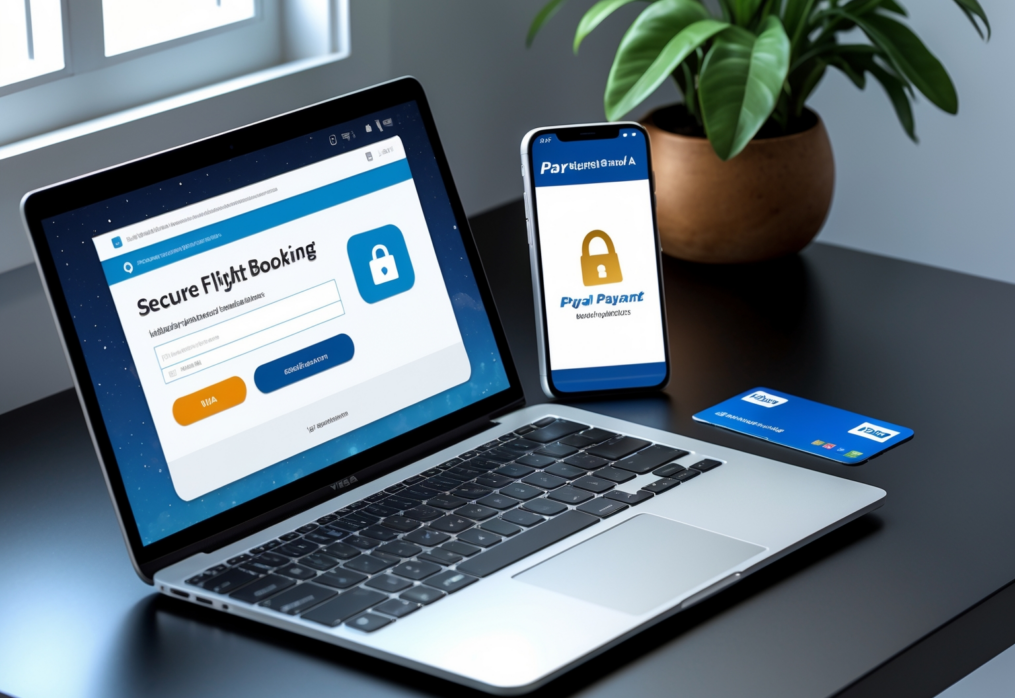Ultimate Guide to Safe Flight & Hotel Booking

Safe Flight and Reliable Hotel Booking: Ultimate Guide to Secure Online Payment and Information Security
Today, traveling is easier than ever. We can book flights and hotels from our phones or computers in minutes. But with ease comes risk. Online payment and information security should be top priority for all travelers. Let’s explore how you can ensure safe flight bookings and reliable hotel stays without risking your personal information.
Why Safe Online Payment is Crucial
Imagine this: You’ve just booked a dream vacation. It’s exciting, but wait—what about the payment? That clicking “pay now” button is not just a click. It’s a commitment and a responsibility. If you’re not careful, you could end up sharing your credit card details with hackers.
Online payments are convenient, but we must be smart and cautious. Personal information can be stolen and misused. What a nightmare! But fear not, because there are ways to protect yourself.
Secure Websites: Trust Marks to Look For
When booking flights or hotels, always check the URL. Look for “https://”. The “s” stands for secure. Also, look for a small lock icon next to the URL. This means the site is encrypted and your data is secure. Ever noticed that some websites have badges that say “Verified” or “SSL Secured”? These are good signs.
Big names like Booking.com often have these security measures in place. It’s always safer to use well-known, trusted sites.
Using Secure Payment Methods
Think about the way you pay online. I always recommend using credit cards! Why? If something goes wrong, it’s easier to get your money back with a credit card than with a debit card. Many credit card companies offer fraud protection. Isn’t that amazing?
PayPal is another secure option. It’s like a magic shield for your bank details. When you use PayPal, the seller never sees your actual credit card number. Isn’t that neat?
Importance of Two-Factor Authentication
Have you heard of two-factor authentication? It’s like a secret passcode that only you know. When enabled, even if someone has your password, they can’t access your account without this second code. Many services offer this now. I strongly recommend using it. It’s like adding an extra lock on your door.
Information Security: Guarding Your Personal Details
Information security goes hand in hand with online payment security. When you’re booking a flight or hotel, you often share a lot about yourself. Your name, address, phone number, and even passport details. Yikes! That’s a lot of personal info out there. It’s crucial to understand who you’re sharing this info with.
Password Safety: Keeping it Complicated
Your password is your first line of defense. Create strong, unique passwords for each account. I know, remembering them all is a challenge. But there are password manager apps that can help. They store and encrypt all your passwords. I use one myself and it’s a game-changer!
Public Wi-Fi: Be Careful
Public Wi-Fi is a lifesaver when traveling, but it’s risky for sensitive tasks like online booking. Hackers love public Wi-Fi spots because they can easily steal your data. Use a Virtual Private Network (VPN) for added security. A VPN encrypts your data even on public networks. I never travel without activating my VPN. It gives me peace of mind.
Hotel Booking: Verified and Trusted
Just like flight booking, hotel bookings should be made on secure platforms. Websites like Booking.com and Expedia are trusted by millions worldwide. They provide secure payment methods and have customer service to help if things go wrong. Always read reviews and ratings before booking. This helps avoid scams.
Another tip is to contact the hotel directly before the trip, confirming your booking details. This adds another layer of verification. Better safe than sorry, right?
Data Privacy: Understanding Your Rights
Laws and regulations like GDPR help protect your data. Know your rights. Companies collecting your data should have clear privacy policies. Read them to understand how your data is used. If something feels off, don’t hesitate to reach out to customer service. I once found a hotel with no clear privacy policy. Needless to say, I skipped that booking!
What About Insurance?
Travel insurance isn’t just for protecting against medical emergencies or lost luggage. Some policies cover fraud or identity theft protection too. It’s worth considering. I always include it in my travel plans now. It’s like having a safety net.
The Role of Antivirus Software
Don’t underestimate the importance of antivirus software. It protects your devices from malware and viruses. This is crucial when conducting online transactions. Make sure your software is up to date especially before a trip. I set reminders for updates. Maybe it’s a bit over the top, but better safe than sorry.
Conclusion: Travel Smart and Safe
Traveling opens up the world to us, but it also opens us up to online risks. Being aware and educated is the best defense. Remember these tips: use secure websites, choose safe payment methods, keep your information private, and protect your devices.
Travel smart and travel safe. With a little caution, your travel experiences can be full of joy and free from worry. Safe travels and happy adventures!
